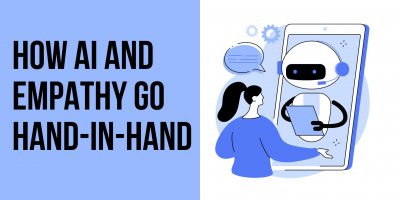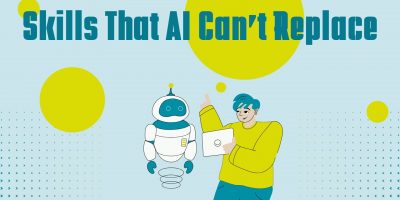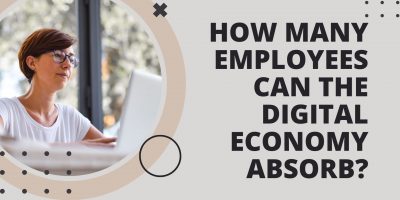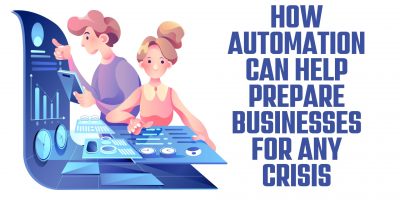
How AI and Empathy Go Hand-in-hand
Unlock the power of AI to enhance employee benefits with empathy, providing personalized and accessible support that empowers employees to make informed choices and navigate their benefits with ease.

Employee benefits are a determining factor for 52% of people to change their jobs and for 75% to stay at their current ones. Therefore, some people question whether artificial intelligence can help with benefits since they see no correlation between AI and empathy.
The numbers above confirm that employee benefits are crucial in attracting and retaining talent. In addition, well-designed benefits packages foster a positive employee experience and increase employee engagement. For that reason, delivering and selecting benefits demands delicate care and empathy.
Hence, the idea that a machine made up of microchips and algorithms could somehow enhance an organization’s ability to show something as uniquely human as empathy might seem doubtful.
Yet, there’s an increasing prevalence of AI in the HR space. According to statistics, many businesses that adopted AI grew 270% between 2015 and 2019. With the massive development of artificial intelligence, the gap between AI and empathy is significantly decreasing.
Empathy is the ability to understand and experience the feelings of another person. It enhances human connections in the workplace and builds strong relationships among co-workers. The bonds forged in the workplace are more valuable than ever, as 57% of employees who have “work best friends” find work more enjoyable.
Every individual has unique values, cultural knowledge, background, and perspectives. Being empathetic helps understand others’ points of view, build the capacity to connect with others, and develop a broader view of the world.
Therefore, empathy is a crucial characteristic among employees, especially middle managers and CEOs. According to a study, 84% of CEOs and 70% of employees believe empathy is the driver for positive business outcomes. Furthermore, 50% of CEOs and 72% of employees believe that empathy motivates employees.
Empathy is not only the way employees and leaders behave.
Employees believe that there is a close connection between empathy and well-being. Therefore, 80% of them regard benefits that are geared towards physical, mental, and financial health as empathetic.
Yet, 68% of CEOs are afraid that showing empathy in the workplace will make them less respected. But, since 90% of Gen Z say that having an empathetic employer is why they stay at the job, the importance of empathy in the workplace is more than evident.1

The evolution of technology has paved the way for artificial intelligence (AI) development.
Since 38% of HR leaders are excited and optimistic about using AI in their work, AI will significantly impact HR departments. There are many reasons why companies are inclined towards AI and how they decide to implement AI in HR.
Employee benefits might be the most delicate out of all the areas where AI can be used in HR. Since benefits can often be pretty personal, such as electing benefits during annual enrollment or choosing to schedule that MRI, they demand a certain level of empathy.
But how can HR professionals improve their empathy game, especially when CFOs increasingly demand they do more with less? And how can they do it with something as resource-intensive as providing and delivering benefits?
That’s where artificial intelligence comes into play.
AI-based applications can deliver service at any time employees need it. Maybe a benefits question wakes an employee up from their sleep. Or, perhaps they work the third shift. No matter the time or place, AI is online and ready to help. AI-based applications are always ready to connect, with no waiting. The most complex issues might still require talking to a benefits administrator. Still, the most common questions that take up so much of the administrator’s time get immediate attention and resolution.
According to US Census Bureau over 380 languages and language groups are spoken in the US. And since benefits can be complicated, often employees find it easier to get information in their native tongue. Getting answers in a language that isn’t their native tongue can make matters worse and lead to partial or complete disengagement. AI applications, however, can interact with users in the language they prefer.
People can sometimes jump to conclusions and can be quick to judge. They often base their opinions on unconscious biases. AI applications don’t have such shortcomings. They are not biased towards anybody, so they treat and serve all employees equally.
Nearly all AI assistants are personified with first names by their creators, such as Siri or Alexa. While they do not have emotions of their own, these “digital entities” are increasingly able to recognize others’ emotions by the words they use.
Programming applications to respond empathetically isn’t easy, but it can be done. They can be “taught” certain human emotions by analyzing chat and phone interactions. Using this information, the AI entity can infer a state of mind based on how users communicate with them and respond accordingly.
Nowadays, technology is excellent at understanding the spoken word and responding in kind. Applying language recognition to applications like benefits software results in a more empathetic experience for employees who prefer to ask their questions verbally, those who don’t like to type, or those with visual impairments.
Only half of the employees understand their benefits, and this is because 80% of them don’t even open or read the benefits materials. So, when an employee isn’t sure about what their benefits offer, AI applications can help them. They can pull information from the vendors to find the information required, or they can mine for details on websites to get the answers an employee needs.
Only half of the employees understand their benefits, and this is because 80% of them don’t even open or read the benefits materials. So, when an employee isn’t sure about what their benefits offer, AI applications can help them. They can pull information from the vendors to find the information required, or they can mine for details on websites to get the answers an employee needs.
Head of Applied Data Science at Businessolver
Browse our curated list of vendors to find the best solution for your needs.
Subscribe to our newsletter for the latest trends, expert tips, and workplace insights!

Unlock the power of AI to enhance employee benefits with empathy, providing personalized and accessible support that empowers employees to make informed choices and navigate their benefits with ease.

Which skills are futureproofed with an irreplaceable “human touch,” and how are emerging technologies driving the evolution of workforce skills?

Explore the implications of technology on the inevitable shift of the labor market and what this would mean for the future of work.

Learn how leveraging automation can enhance organizations’ preparedness to weather unforeseen crises, ensuring resilience and continuity in today’s dynamic business environment.
Shortlister Connect is a tool specifically designed to be utilized by the HR and Procurement/Sourcing teams within mid-size, large and jumbo employers. Shortlister Connect allows these teams to efficiently research & identify their optimal vendor partners, track existing vendor relationships & performance and “connect” with other employers to share successes and vendor experiences.
If you are not on the HR or Procurement/Sourcing team within an employer with over 200 employees, you will not be granted access to Connect. Examples of individuals that would not be granted access include, but are not limited to: vendors, students, practitioners, researchers, other non-employers or anyone that is unwilling to identify themselves will not pass our vetting criteria. If you are a consultant, Shortlister offers a specialized product for consultants, called Shortlister Select. You can email Tom Ciccotti at tciccotti@myshortlister.com to learn more about Shortlister Select.
***Shortlister retains the exclusive right to grant or deny access to any party to ensure the privacy of the vendors in our system.
Please login with your LinkedIn Credentials
Used by most of the top employee benefits consultants in the US, Shortlister is where you can find, research and select HR and benefits vendors for your clients.
Shortlister helps you reach your ideal prospects. Claim your free account to control your message and receive employer, consultant and health plan leads.